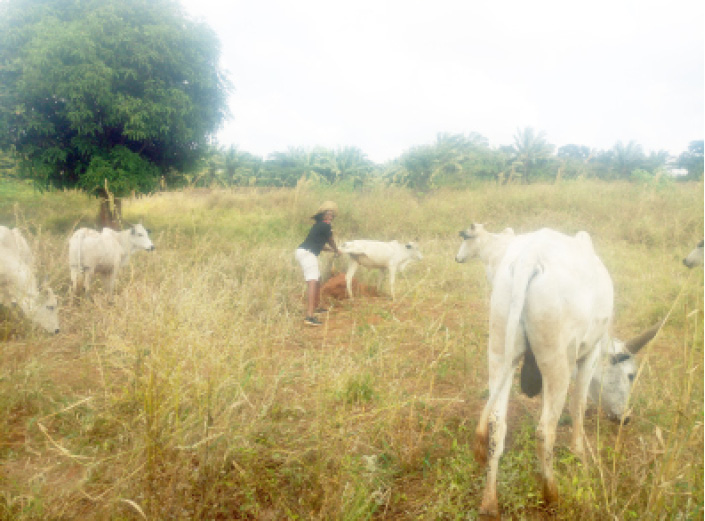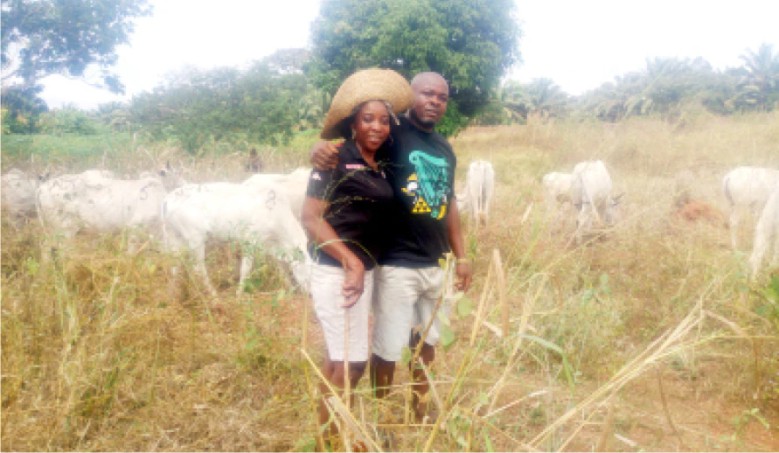Ekene Obaye, a native of Nguru Nsukka in Nsukka local government area of Enugu state has become the first documented Igbo herdswoman and many are fascinated by her work.
Over the years, cattle herding in the country seemed to be reserved for men, especially, those from the Fulani extraction of northern Nigeria but Obaye is out to challenge that notion.
Right now, Obaye is garnering a star-like attention from Nigerians who couldn’t believe that a woman can take cow rearing as a daily job.
According to the 38-year-old mother of two, she turned to the profession of cow rearing as a result of two things: 1) an accident that almost took the life of her husband and 2) lack of job.
A graduate of Archeology and Tourism from the University of Nigeria Nsukka (UNN), Obaye admitted that her husband’s family had been known for cattle rearing long before she married into the family, Daily Trust reports.
She said: “The first day I entered the bush with many cows, the natives rushed out with their cutlasses, screaming “Nwayi Fulani n’achi efi!” That is a Fulani woman who is rearing cows. They were restive so I spoke Igbo and introduced myself as the wife of Patrick Obaye. They calmed down and showed some excitement at a young Igbo woman who is not afraid of cows. They encouraged me after I told them what happened to my husband. They said they knew my husband but didn’t know me as one who could herd cows so fearlessly.”

She also revealed she doesn’t take her cows to people’s farms to prevent them from ruining people’s crops.
On social media, many people started appreciating her work and sound reason.
Sadiq Muhammad Al-Ameen Nuhu wrote:
“Good move by Mrs. Obaye I wish you and your family well. God will direct you towards the money you need for ranching and don’t forget to train other Nguru/Nsuka women. God bless Nsuka God bless Enugu and God bless Nigeria.”
Vincent T Yahuan added: “An inspiring story. If the traditional Fulani herders had been thinking this way , they would have made great progress in the cattle rearing business and have greatly improved their standards of living. Unfortunately, even those among them that are educated and enlightened, are instead, misleading them into keeping to an outdated practice of wandering from place to place without permanent abodes with resultant disastrous consequences.”



